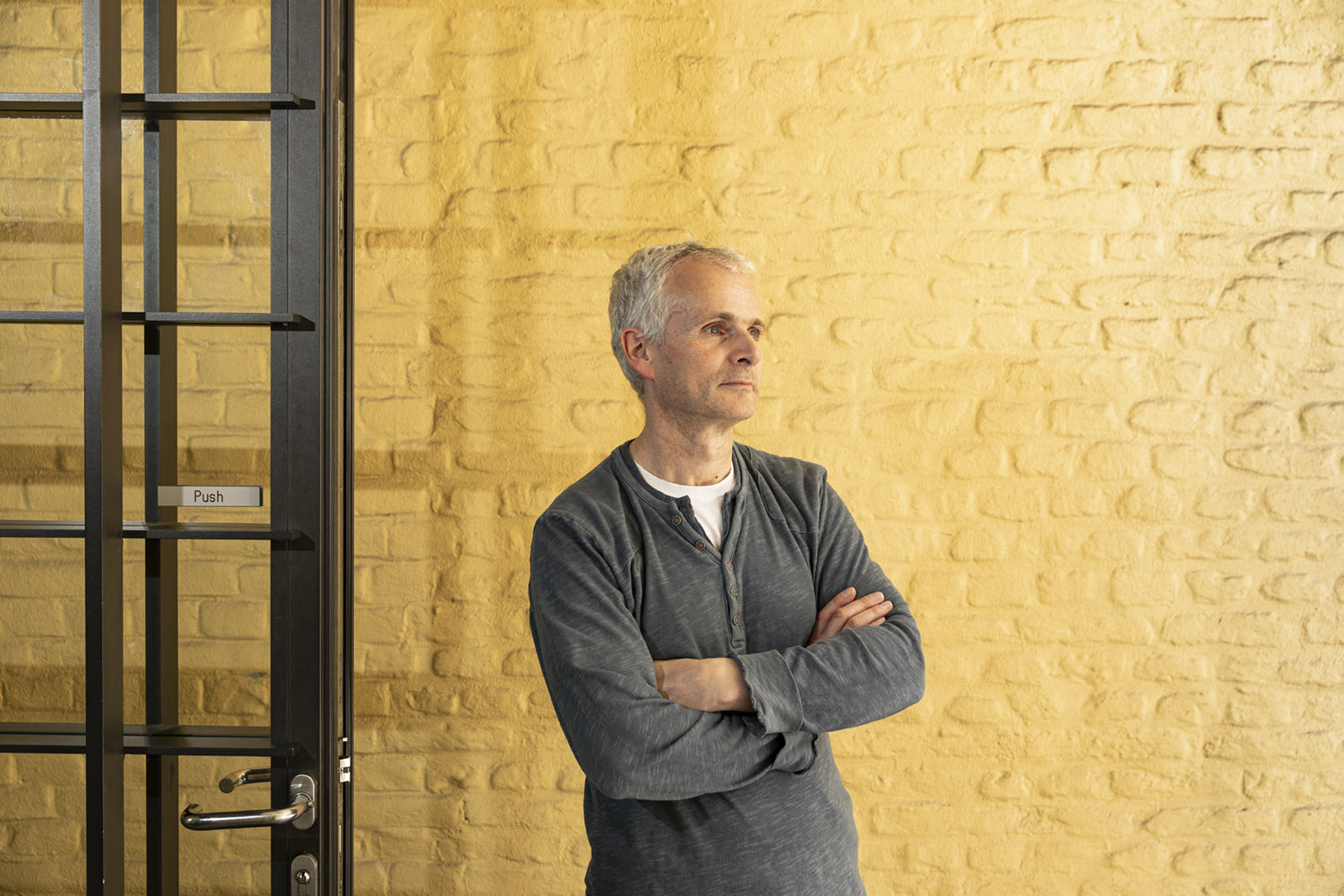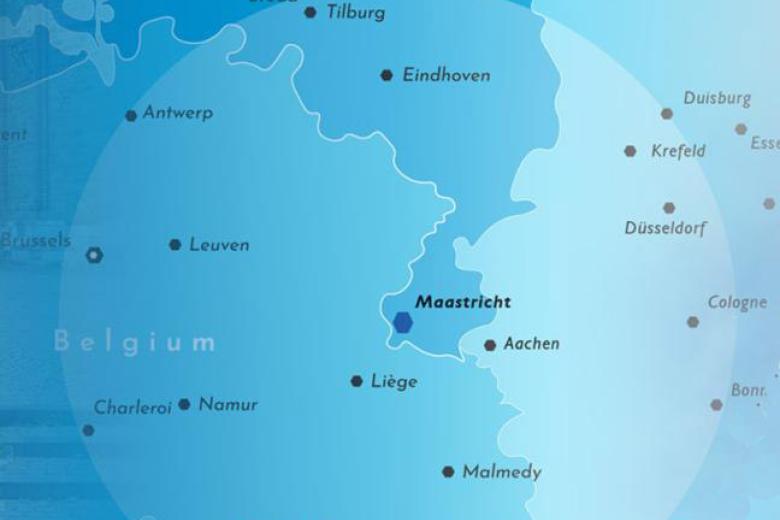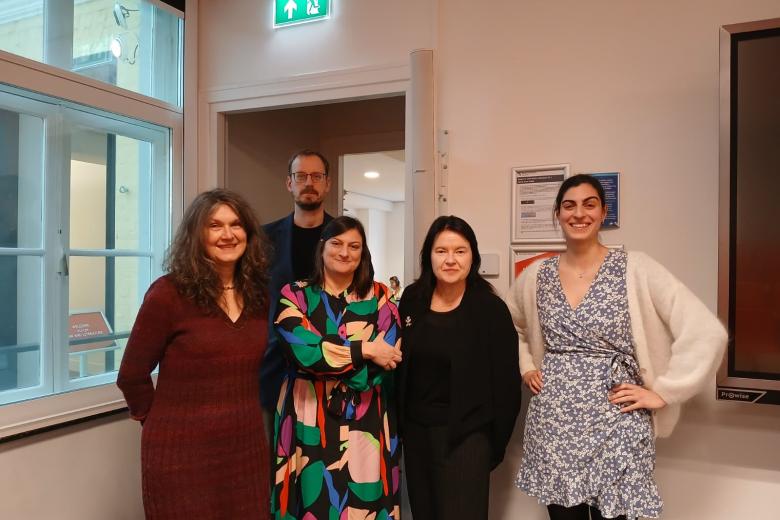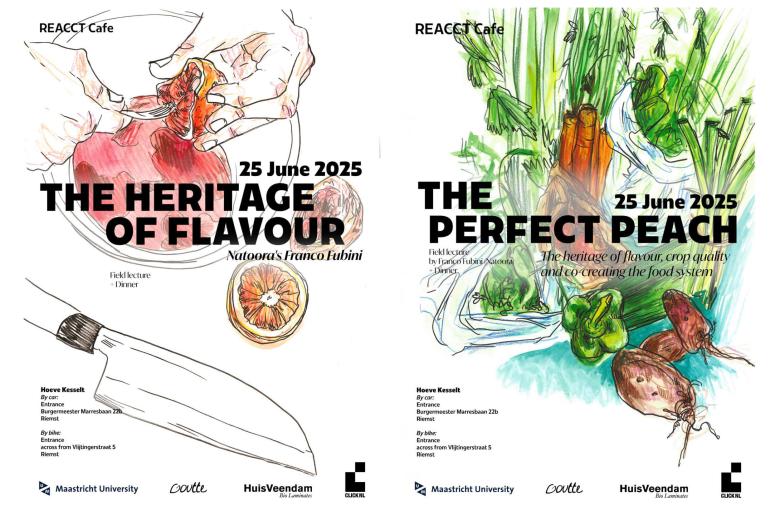European flywheel needed to address the climate crisis
Europeans consider climate the most important issue on the European agenda. According to opinion polls, it is more important than security and human rights. European consumers say they’re prepared to change their ways. Eat less meat and fly less, for example. But that’s easier said than done. Government action is needed in order to save the climate. In other words, new rules and regulations are required, designed and enforced by national authorities, preferably in collaboration with other countires. The EU has the framework for this.
Seven UM scientists shed light on the European state of affairs as part of our series Maastricht, reflecting on Europe.
“People in Europe are concerned about the climate and rightly so”, says environmental philosopher Marc Davidson, a professor at Maastricht University. “The United Nations climate panel, the IPCC, warns that even the ambitious climate goal of Paris still cannot really be called safe. To avoid major risks, we have to change course much faster. But you cannot shape climate policy at only the national level. You also need international cooperation for that.”
Making a decision
“A few years ago, Europe was promoted under the slogan Quite Important (Best Belangrijk)”, says Davidson. “As far as I am concerned, that is not nearly expressed strongly enough. You can only tackle cross-border problems properly with coordination on the scale on which the problem occurs. For climate change, that is a global scale. Binding global agreements are, unfortunately, still a bridge too far. If it succeeds within the European Union, we can already be very satisfied."
International cooperation is crucial in order to achieve progress. The two main reasons for international cooperation are the prevention of free riders and the creation of a level playing field. Free riders are countries that wait for other countries to solve environmental problems at no cost to them. Re a level playing field; “If you have a stricter climate policy than your neighbouring countries, this may be detrimental to the competitiveness of some companies in your country. That is why, just like in the book Leviathan by the British philosopher Thomas Hobbes, you need a sword from above to coordinate and enforce the cooperation that is in all of our best interest."
Meat and air traffic
Meanwhile, consumers make a considerable contribution to reducing our impact on the climate. Mainly by eating fewer animal products and flying less. Meat production contributes to climate change in many ways, from the loss of forests for the cultivation of animal feed to the methane that the grazers themselves emit.
“It is precisely through its extensive agricultural subsidies that the EU can exert a great deal of influence. It could be done through fewer subsidies for animal husbandry and perhaps more subsidies for meat substitutes, such as the world-famous cultured meat burger from my Maastricht colleague Mark Post. The EU also has an important role to play in reducing air traffic, both by passing on the societal costs of air traffic through ticket prices and by investing in improving the train network as an alternative.”
We just want to ...
Davidson knows full well that he is saying nothing new. “We know very well that we would have to live differently if we want to leave the earth a little better for our children. Yet we are unable to make the right decisions. Evolutionarily speaking, we are not wired that way. We are able to respond well to dangers in our direct line of sight, not to dangers that occur decades later and far removed from us. That is why, according to British-Scottish philosopher David Hume, we need a government that protects us from our own short-sightedness. The fact that the government requires us to save for our pension from our first job is a good example of this.”
More awareness
During the last election campaign, you saw that all major political parties have become increasingly Europe-minded. The number of climate marches has been increasing in recent years. The young Swedish climate activist Greta Thunberg touched the hearts of EU leaders with her emotional appeal. But there is also a clear counter-movement going on, notes Davidson.
“This is sometimes understandable. The pension funds, which we have all contributed to, also have investments in oil companies. The depreciation of their oil stocks therefore also directly affects our pensions. It sometimes looks like a Gordian knot that is difficult to untangle. My colleague Rob Bauer of Maastricht’s School of Business and Economics is researching this." (text continues below photo)

Flywheel
Between dream and reality, there is still a long way to go, Davidson admits. “Still, I see Europe as a big flywheel that is difficult to begin to move, but once it starts turning it is almost impossible to stop. European policy is therefore more resistant to the issues of the day. There have been times when the Netherlands has been the driving force behind European environmental policy, but more recently there have been years when the Netherlands has been moved by Europe, such as in the areas of nature conservation and sustainable energy. The European rules then offer environmental groups and organisations such as Urgenda the legal tools to keep the Dutch government on its toes.”
Europe after the elections
It is important that Europe can continue on the chosen path, Davidson concludes. The large election gains for green parties give hope that they will also play a role in shaping new European policy because, though climate policy is already moving too fast for some parties, the European flywheel still needs to move a bit faster.
Also read
-
DigiMach places Meuse-Rhine Euroregion at the heart of industrial digitalisation
DigiMach (Digital Machining) is a new cross-border project uniting Belgium, Germany, and the Netherlands around a common goal: accelerating the digitalisation of the machining industry in the Meuse-Rhine Euroregion.
-
Globalisation & Law Network seminar with Áine Ryall
On 24 November 2025, the Globalisation & Law Network, together with the Institute for Globalisation and International Regulation (IGIR) held the seminar with Professor Áine Ryall.
-
Picture this – researchers drawing on illustrators
FASoS’ Laura Ogden and illustrator Michael Kirkham have launched Picture This , which sees arts student from Dundee illustrate the research of social scientists from Maastricht University.